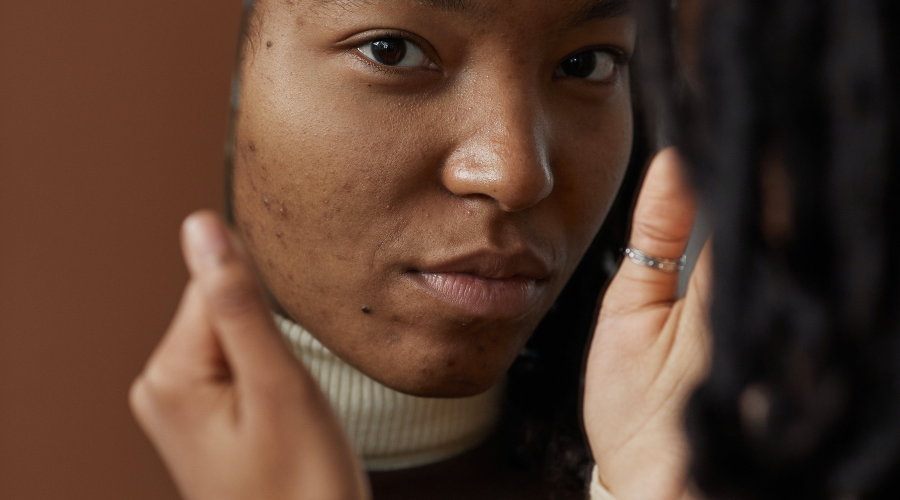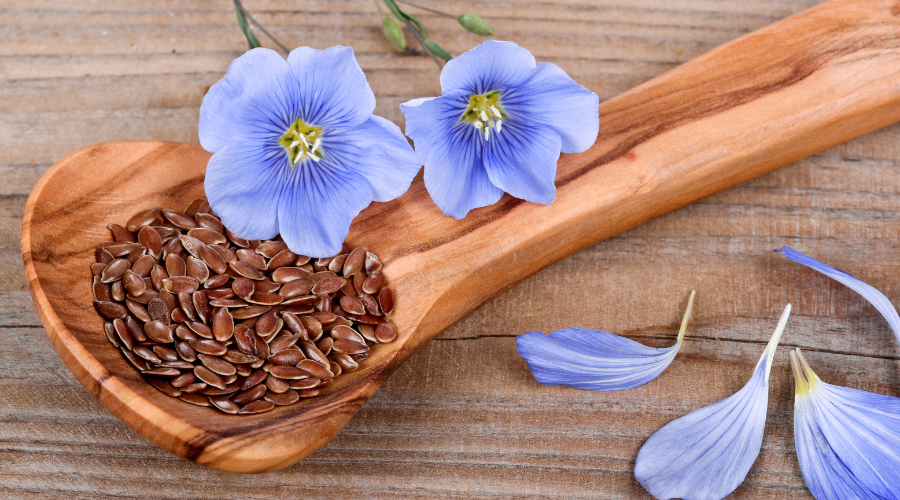You've noticed more hair growing in places you'd rather it not, like your chin, chest, and stomach. It's getting annoying having to shave or pluck those stray hairs all the time. You've heard of herbal remedies that might help with hirsutism. But do they really work or are they a waste of money?
You're eager to try something natural that could get to the root cause of the hair growth, but skeptical that herbs could make a difference. This article will go over the most popular herbal remedies for hirsutism and look at the evidence on whether they are effective treatments. You'll learn the pros and cons of saw palmetto, spearmint tea, and other natural solutions so you can decide if they are worth a shot.
What Is Hirsutism?
Hirsutism refers to excessive hair growth on a woman's face and body. It's often the result of higher-than-normal levels of androgens, or male sex hormones, in women. The most common cause is polycystic ovary syndrome (PCOS), but it can also be caused by other hormonal imbalances or, rarely, an adrenal gland disorder.
Signs and Symptoms
The most obvious symptom of hirsutism is coarse, dark hair growth on the face, chest, abdomen, and back. You may notice hair growth in a male pattern, such as on the chin, upper lip, sideburn area, and chest. The excess hair growth tends to first appear during puberty and gets progressively worse over time. Other symptoms may include irregular periods, acne, and weight gain.
Diagnosis and Hair Reduction Options
If you're experiencing unwanted hair growth, see your doctor. They will ask about your medical history and symptoms, perform a physical exam, and possibly order blood tests to check your hormone levels. Treatment options include birth control pills to regulate hormones, anti-androgen medications, laser hair removal, and electrolysis to permanently remove hair follicles. Lifestyle changes, like losing excess weight and reducing stress, may also help lower androgen levels.
While herbal remedies like spearmint tea, licorice, and saw palmetto are said to help reduce hirsutism, there is little evidence to prove they are effective. The medical treatments prescribed by your doctor remain the most proven methods for controlling excess hair growth and the underlying hormonal imbalances that cause it. By combining medical and natural therapies under the guidance of your doctor, you have the best chance of success in managing hirsutism in the long run.

How Herbal Remedies May Help With Hirsutism
Some herbal remedies may help improve hirsutism symptoms and reduce excess hair growth in women. These natural alternatives are thought to work in several ways:
Balancing Hormones
Herbs like saw palmetto, licorice root, and chasteberry are believed to help regulate hormone levels, possibly reducing excess androgens like testosterone that can drive excess hair growth. By promoting hormone balance, these herbs could help slow hair follicle stimulation and decrease unwanted hair.
Reducing Inflammation
Inflammation in the body is linked to hirsutism and may play a role in excess hair growth. Anti-inflammatory herbs such as turmeric, green tea, and rosemary are thought to help reduce inflammation in the hair follicles and body. Limiting inflammation could make the environment less conducive to hair growth.
Improving Liver Function
The liver helps metabolize hormones and filter toxins from the blood. When the liver is sluggish, excess hormones may circulate and hair growth can increase. Herbs like milk thistle, dandelion, and peppermint are believed to support liver health and improve its ability to remove excess hormones and other chemicals from the blood that may drive excess hair growth.
Slowing Hair Growth
Some herbal supplements like saw palmetto, turmeric, and licorice root are thought to help slow the growth of hair follicles, which could translate to slower hair growth and decreased hirsutism. While research is limited, some studies show these herbs may inhibit certain enzymes involved in hair growth.
Herbal remedies may take several months of use to show noticeable effects on hirsutism. As with any supplement, herbal remedies can cause side effects and may interact with medications. It's best to talk to your doctor before using herbal supplements to treat hirsutism. While herbal remedies could provide natural relief from hirsutism for some women, medical treatment may still be needed for the best results.

Common Herbal Remedies for Hirsutism
Spearmint Tea for Hirsutism
Spearmint tea is a popular herbal remedy for hirsutism. The tea contains compounds that can help reduce androgens like testosterone in your body, which stimulates excess hair growth. Some research shows drinking two cups of spearmint tea daily may help lower testosterone levels and decrease hirsutism symptoms over time.
Does Licorice Root Help with Hirsutism?
Licorice root extract contains a compound called glycyrrhizin that may help block the conversion of testosterone into DHT, a more potent androgen that stimulates hair follicles. Some studies found licorice root gel or ointment applied to the skin may reduce hair growth for some women. You can also take licorice root capsules, following the dosage recommended on the product. However, licorice root can raise blood pressure in some people, so check with your doctor first, especially if you have a medical condition.
Saw Palmetto for Hirsutism
Saw palmetto is an herb used in traditional medicine to treat excess hair growth and hair loss. It contains compounds thought to block DHT and reduce its effects in stimulating hair follicles. Some research shows saw palmetto supplements may decrease hirsutism and improve hair growth for some women. The typical dosage is 160 mg twice per day. Saw palmetto can cause nausea or diarrhea in high doses, so you may want to start with a lower dose and increase slowly.
Do Flaxseeds Reduce Androgens?
Flaxseed is high in lignans, compounds that can help balance hormones and block the effects of testosterone. Some studies found flaxseed supplements may decrease hirsutism symptoms for some women over 3 to 6 months. You can add one to two tablespoons of ground flaxseed to your yogurt, oatmeal or smoothie each day. Flaxseed has a mild nutty flavor and is a good source of omega-3 fatty acids, fiber and antioxidants. However, flaxseed may not work for every woman, and it can take several months of use to determine if it will improve your symptoms.
Hair Reduction Fade Oil
If you're in search of a natural solution for diminishing facial hair, consider exploring the benefits of hair reduction fade oil. This botanical-based remedy has many positive testimonials from users who have witnessed its effectiveness firsthand.
By looking through the reviews, you'll notice a consistent track record of success, as many have praised the oil's ability to gently reduce the appearance of unwanted facial hair. Opting for this approach over other natural remedies offers peace of mind through the shared experiences of satisfied customers.
In conclusion, natural remedies for hirsutism offer hope for those seeking alternative or supplementary treatments to conventional methods. While individual results can vary, the collective experiences of many suggest that it is worthwhile to explore natural options, such as hair reduction fade oils and herbal supplements.
It's essential, however, to approach these remedies with realistic expectations and to understand that they may work best as part of a broader, holistic approach to managing hirsutism. Consulting with healthcare professionals can help tailor a personal regimen that includes these natural strategies, ensuring they are safe and suitably aligned with your health objectives.
Ultimately, the journey to managing hirsutism may be one of trial and adaptation, but with patience and persistence, natural remedies can play a significant role in improving the quality of life for those affected by this condition.



